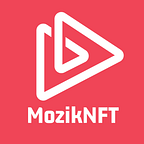Mozik CEO Mario Lee: Artists are Being Empowered to Experiment and Innovate with New-tech
The Way We Listen has Changed Fundamentally
The digital revolution of the late 20th Century allowed for the mass dissemination of music through Mp3’s stored on CDs and later shared online. Within the space of a few years, music became something easily duplicable, readily available, and virtually free. The increase in accessibility meant people were now overwhelmed with choice.
Naturally, we love to feel like we have a choice but in reality, we prefer less choice. With this excess of choice, streaming services emerged as the clear superior business model as AI algorithms learn our individual tastes and recommend music we might like. This change cannot but understated; we moved from actively going out to see or purchase music from artists we know and like, to now passively listening to whatever is next on our own personal radio show.
Moving forward, what we are seeing develop (especially for young people) is constant exposure to the same few soundbites as backing tracks to short videos on platforms like TikTok. Young people don’t actually search for music anymore, they just consume whatever is played to them. A friend of mine likes to joke that in the future, artists will release 10 seconds songs because that’s all anyone listens to anyway.
Effects on Musicians
The Internet has completely changed the intellectual property landscape as it is near-impossible to prevent copyright infringement on easily duplicable digital assets. Music now has a much greater reach but is a lot less transparent. With this lack of transparency comes a lack of income revenue and a fundamental shift in how musicians are leveraging their works to make money.
In China, for example, up-and-coming singers will sometimes pay to be heard on streaming services. The game has shifted from music-focus to artist/brand-focused as musicians leverage the popularity of their music (even if it was paid for) to appear on TV shows and product advertisements, gaining fame and fortunes that way.
When Tech Meets Art: How will artists respond to technological innovation?
As artists, musicians are naturally innovative and willing to experiment with new tools and ideas. Just as Mp3’s and CDs extended the reach of their music, so too will emerging technologies enable them to be heard by more and more people. Creatives generally tend to embrace change and are often at the forefront of technological development as new mediums allow them to express their art in new ways.
NFT’s in Creative Industries
Happening in parallel to the cryptocurrency bull run, the NFT craze of the first half of 2021 resembles a bubble but I would be hesitant to say it is one. Currently, people are very excited about the implications of being able to create unique digital objects. And though we obviously have no idea about all of the things that will be done with NFT’s, progress on some fronts, especially that of preserving intellectual property rights, is something I feel will add a lot of value to creatives and especially musicians.
About Author
Mario Lee is the former COO of Digital Music for Rolling Stone Mobile Digital Music, Former Deputy General Manager of New Media for Beijing Music, and created China’s first music app ‘YouListen’, which was acquired for $21 million. A practitioner of merging music and technology, Mario founded Mozik in 2015.
About Mozik
Mozik is a decentralized music streaming platform that utilizes blockchain-powered NFT technology to provide artists with recognition and remuneration for their works. The platform enables users to discover quality emerging musicians, and actively contribute to their development. Currently, Mozik boasts 10 million registered users and is focused on providing the best music-streaming service possible before moving to other creative industries.
